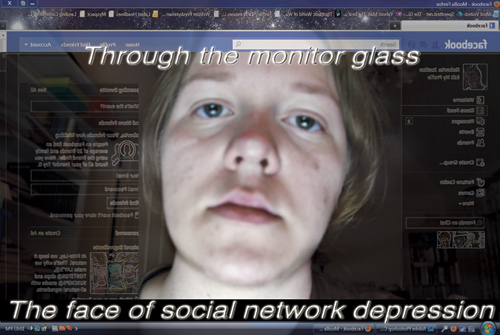Facebook depression a growing epidemic among teens
Norma Villarreal
The Signal
A new study from the American Academy of Pediatrics (AAP) has coined a new phrase called “Facebook depression.”
Facebook depression is a condition that affects troubled teens who obsess over online social networks such as Facebook, MySpace and Twitter.
One example of Facebook depression, said William H. Reading, MD, diplomat of the American Board of Psychiatry and Neurology, is teens logging on to Facebook and viewing the status of their friends, only to find that a friend’s popularity extends beyond his or her social circle. Not being a part of that extended social network can lead to feelings of isolation and depression.
“Teens do not have a well-established identity, so they try to fit into groups,” Reading said. “They get really fearful if they are ostracized from that group. If someone says something negative about them all of their friends see it, the group that they are trying to fit into.”
Social networking is the most common way for today’s youth to communicate with each other.
Recent polls conducted by The Benenson Strategy Group show that 22 percent of teens log-on to a social media site more than 10 times a day; 50 plus percent log-on at least once a day; and 75 percent of teens have cellphones, with 25 percent of those using them for social media, 54 percent for texting and 24 percent for instant messaging.
“When I was growing up we didn’t have Facebook,” said Joycelyn Gordon, physician assistant certified. “It is better to go back to talking on the phone or to people directly, hanging out at the mall or whatever the case may be. I try to get my patients to understand that a lot of what others say on the Internet is not the truth or accurate representation. People want to represent themselves in the best of light.”
The AAP has set guidelines recommending that parents educate themselves and their children to the dangers of social networking. Some of these guidelines discuss how parents should become better educated about the numerous technologies their children are using and to talk to their children about online use and the issues that children face using social networks.
The AAP has new guidelines for doctors to ask patients including whether they use Facebook and, if so, how much time they spend on the site in an attempt to offset Facebook depression.
“The age group that is affected by Facebook depression is predominantly among women and teenagers,” Gordon said. “Just within the last six months, for some reason, it seems like I have had a lot more patients dealing with issues of depression, anxiety and social issues.”
Parents should not get the impression that online social networking is going to cause depression in their child’s life, but should be made aware of the dangers in order to protect them.
Dr. Megan Moreno, an adolescent medicine specialist who studied online social networking among students, told AAP that Facebook can enhance feelings of social connectedness among well-adjusted kids, and have the opposite effect on those prone to depression.
“Parents do need to be educated so that they know what is going on in their children’s life,” Gordon said. “The primary issue with parents is building self-esteem at home so that children will have a strong sense of self-confidence in who they are and won’t have to look to others for validation from their peers.”
Worst-case-scenarios include cyber bullying. When a child or teen is targeted, threatened, harassed, tormented, embarrassed or humiliated by others who use the Internet or any other interactive social device or technology is called cyber bullying.
Recently several states have passed laws against cyber bullying, which are meant to protect kids from being harassed, threatened, or humiliated online.
Cyber bullying is considered to be a third-degree felony. If someone is found guilty of cyber bullying, he or she can face as much as 10 years in prison.
Due to the invasiveness and pervasiveness of the cyber world, some users may become overwhelmed causing a negative impact on their lives.
“The only way to avoid Facebook depression, is to not use the Internet as a primary need of networking,” Gordon said.
The term Facebook depression came from a small written paragraph written for the AAP on page 802 of a Clinical Report called The Impact of Social Media on Children, Adolescents, and Families, authored by Gwenn Schurgin O’Keeffe, pediatrician and journalist, and Kathleen Clarke-Pearson, M.D., FAAP.
By the time The Signal contacted Dr. O’Keefe for a statement, she was already weary of answering questions about Facebook depression. “Facebook depression is overrated,” is all O’Keefe would say.


